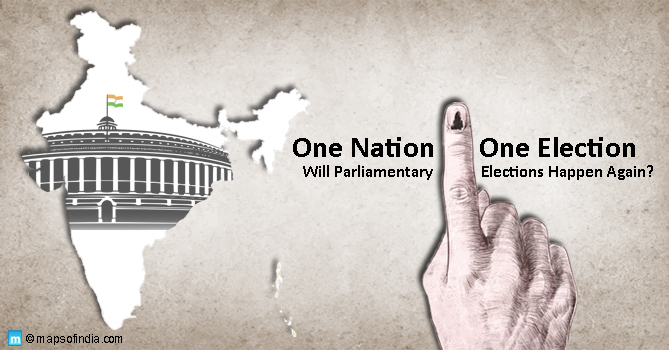
Text & Context: What is the debate around 'one nation, one election'?
CURRENT AFFAIRS FOR 06TH SEPTEMBER, 2023
Text & Context: What is the debate around 'one nation, one election'?
• In news?
Central government set up a panel headed by former President Ram Nath Kovind to explore the feasibility of the ONOE plan.
• The idea centers around the concept of synchronizing the timing of Lok Sabha and State Assembly elections across all states.
• The first-ever general elections to Lok Sabha and all State Assemblies were conducted simultaneously in 1951-52. The practice continued for three subsequent Lok Sabha elections until 1967, after which it was disrupted.
• In 2018, the Law Commission of India headed by Justice B.S. Chauhan, released a draft report on simultaneous elections. The commission submitted that the practice was not feasible within the existing framework of the Constitution. It would require amendments to the Constitution, the RPA 1951, and Rules of Procedure of Lok Sabha and State Assemblies. Plus, such an amendment would require ratification from atleast 50% of the States.
However, with respect to its advantages, the commission said that ONOE would lead to saving of public money, reducing the strain on administrative setup and security forces, timely implementation of policies, and governmental focus on development rather than electioneering.
• Article 83(2) and 172 of the Constitution stipulates that the tenure of the Lok Sabha and State Assemblies will last for five years unless dissolved earlier, as in the case of Article 356.
Therefore, it raises concerns with regard to feasibility.
Secondly, there are counter arguments that ONOE is against the concept of "federalism" as enshrined in Article 1 which envisages India as "a Union of States".
